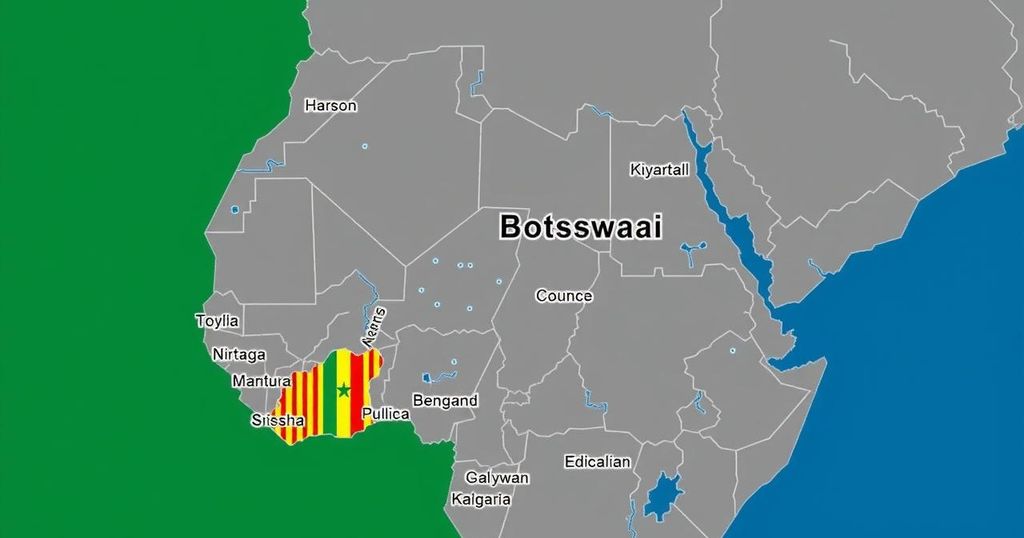Botswana President Concedes Defeat, Signaling End of BDP’s Long Rule
Botswana’s President Mokgweetsi Masisi has conceded defeat in the recent elections, ending his party’s nearly sixty-year rule. The opposition coalition, UDC, led by Duma Boko, is poised to assume power after receiving significant support, as preliminary results show the UDC winning the majority of parliamentary seats. Economic challenges arising from a downturn in the diamond market further amplify the need for effective leadership and economic diversification.
Botswana’s President Mokgweetsi Masisi has officially acknowledged his defeat in the recent elections, marking the end of an almost sixty-year ruling period for his party, the Botswana Democratic Party (BDP). Preliminary results indicate that the BDP has lost its parliamentary majority, a significant shift in the country’s political landscape. According to reports from the local newspaper Mmegi and state radio, the UDC (Umbrella for Democratic Change) coalition has taken the lead in the election, positioning its leader, attorney Duma Boko, as a strong contender for the presidency. Although Boko has not yet made a public statement, the implications of the election results are clear. At a press conference, Masisi stated, “Although I wanted to stay on as your president, I respect the will of the people and I congratulate the president-elect. I will step aside and I will support the new administration.” Analysts had anticipated a competitive election; however, the BDP was still largely expected to retain power. As of reported results from 36 of 61 constituencies, opposition parties have secured a decisive lead, with the UDC achieving victories in 25 seats while the BDP managed to win just one. To achieve a parliamentary majority, a party must secure 31 constituencies. Furthermore, Botswana, a country known for its relative stability and prosperity stemming from diamond revenues and a small population benefiting from free healthcare and education, is currently facing economic challenges following a downturn in the diamond market. The need to diversify the economy has become more acute as revenue pressures increase.
Botswana has been under the governance of the Botswana Democratic Party since its independence from Britain in 1966. This lengthy tenure has been marked by political stability and economic prosperity due to the country’s substantial diamond resources. However, the recent downturn in the diamond market has significantly affected government revenues, raising concerns about the sustainability of the economy. The political landscape is now witnessing a transformation, as the opposition coalition, UDC, gains momentum in the wake of a pivotal election that could shape the future of the nation.
In conclusion, President Mokgweetsi Masisi’s concession marks a historic transition for Botswana, with the opposition coalition poised to take power after nearly sixty years of BDP rule. The results reflect the evolving political dynamics in a country that has relied on its diamond wealth but is now challenged by economic diversification pressures. As the nation anticipates the leadership of Duma Boko, the implications of this election are set to resonate throughout Botswana’s political and economic landscape for years to come.
Original Source: www.theguardian.com




Post Comment